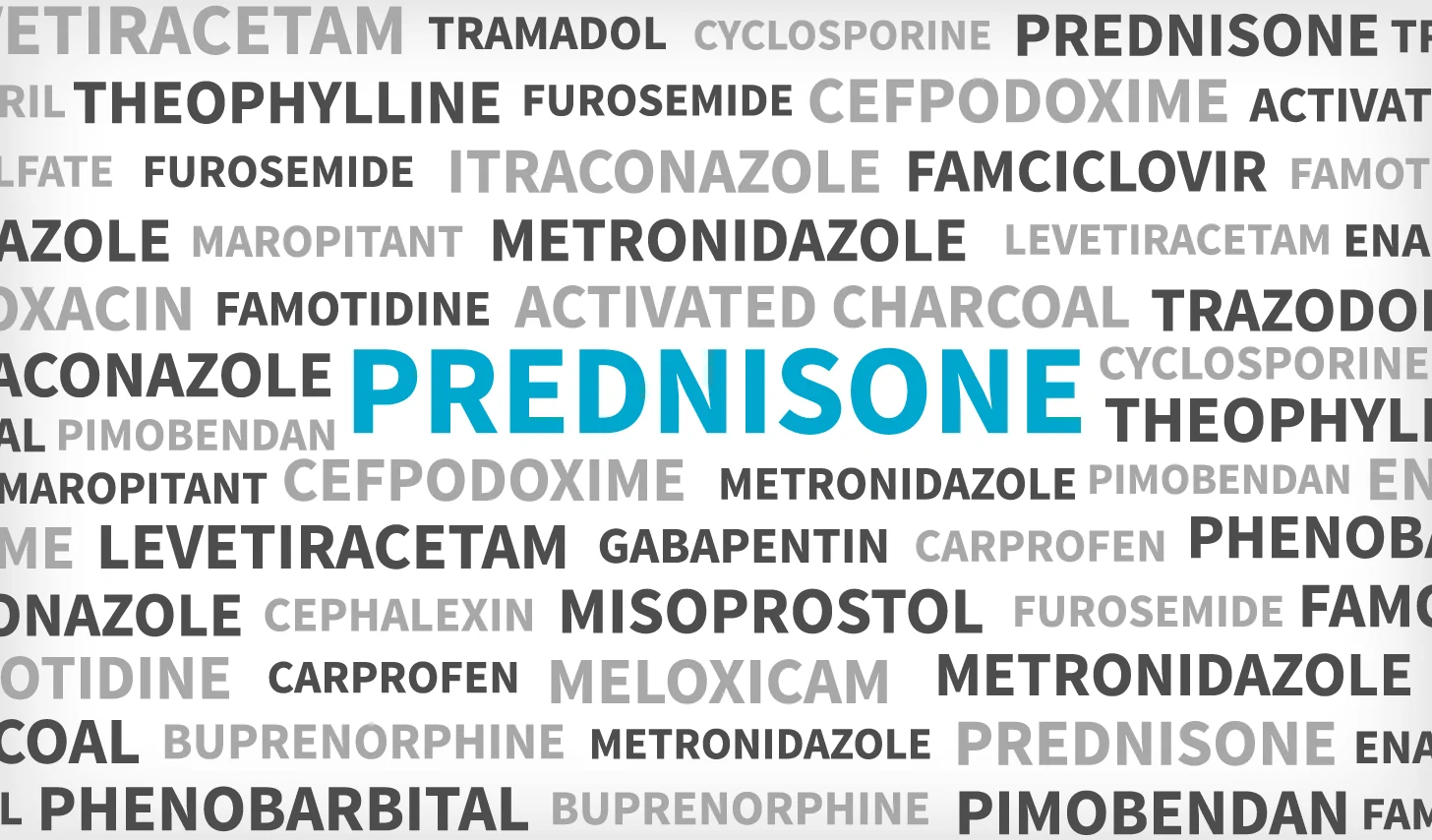Prednisone / Prednisolone

Systemic Glucocorticoid
Prescriber Highlights
Cats and patients in severe hepatic failure may not be able to efficiently convert prednisone to prednisolone
Anti-inflammatory activity is 4 times more potent than hydrocortisone; also has some mineralocorticoid activity
Goal of therapy is to use as much as is required for effect but to use as little as possible for as short an amount of time as possible to avoid systemic side effects
Uses, Indications
Physiologic replacement or supplementation (hypoadrenocorticism, relative adrenal insufficiency associated with septic shock)
Anti-inflammatory agent
Immunosuppressive agent
Antineoplastic agent
Contraindications, Precautions, Warnings
Contraindications
Systemic fungal infections, when administered IM in patients with idiopathic thrombocytopenia, and in patients hypersensitive to a specific compound
Congestive heart failure, diabetes, chronic nephritis, GI ulceration, and osteoporosis are relative contraindications
Precautions
Patients with renal disease may be more predisposed to developing GI side effects
Warnings
Patients receiving steroids chronically should be tapered off the drug
Side Effects
Polydipsia, polyuria, polyphagia, panting, weight gain, muscle wasting, behavioral changes, hair coat changes, vomiting, diarrhea
Long-term, high-dose therapy can lead to Cushingoid effects
GI ulceration reported, especially at high doses
Elevated liver enzymes, hypercoagulability, activation or worsening of diabetes mellitus
Cats experience a greater hyperglycemic effect than other species
Drug Interactions
NSAID administration is discouraged because of increased GI ulceration risk
Insulin requirements may increase in patients receiving glucocorticoids
Diuretics and digoxin may cause hypokalemia
For a complete list of drug interactions, visit plumbsveterinarydrugs.com
Monitoring
Dependent on reason for use, dosing schedule, duration of therapy, patient’s age and condition
Weight, appetite, serum electrolytes, total plasma proteins, albumin, blood glucose, signs of edema
Client Information
Give with food
Many side effects are possible, especially when used long-term
Dogs can experience GI ulceration and should be monitored for dark, tarry stools or bloody vomit
Do not discontinue abruptly
Dosage Forms
Both veterinary- and human-labeled products are available:
Prednisone tablets: 1 mg, 2.5 mg, 5 mg, 10 mg, 20 mg, 50 mg
Prednisolone tablets: 5 mg
Prednisolone sodium phosphate oral disintegrating tablets: 10 mg, 15 mg, 30 mg
Prednisone oral solution: 1 mg/mL
Ophthalmic solutions/suspensions are available
—Compiled and summarized from Plumb’s Veterinary Drugs by Shannon Palermo, VMD
Information about this drug was adapted from Plumb’s Veterinary Drugs. Further details and more therapeutics can be found with a subscription at plumbsveterinarydrugs.com